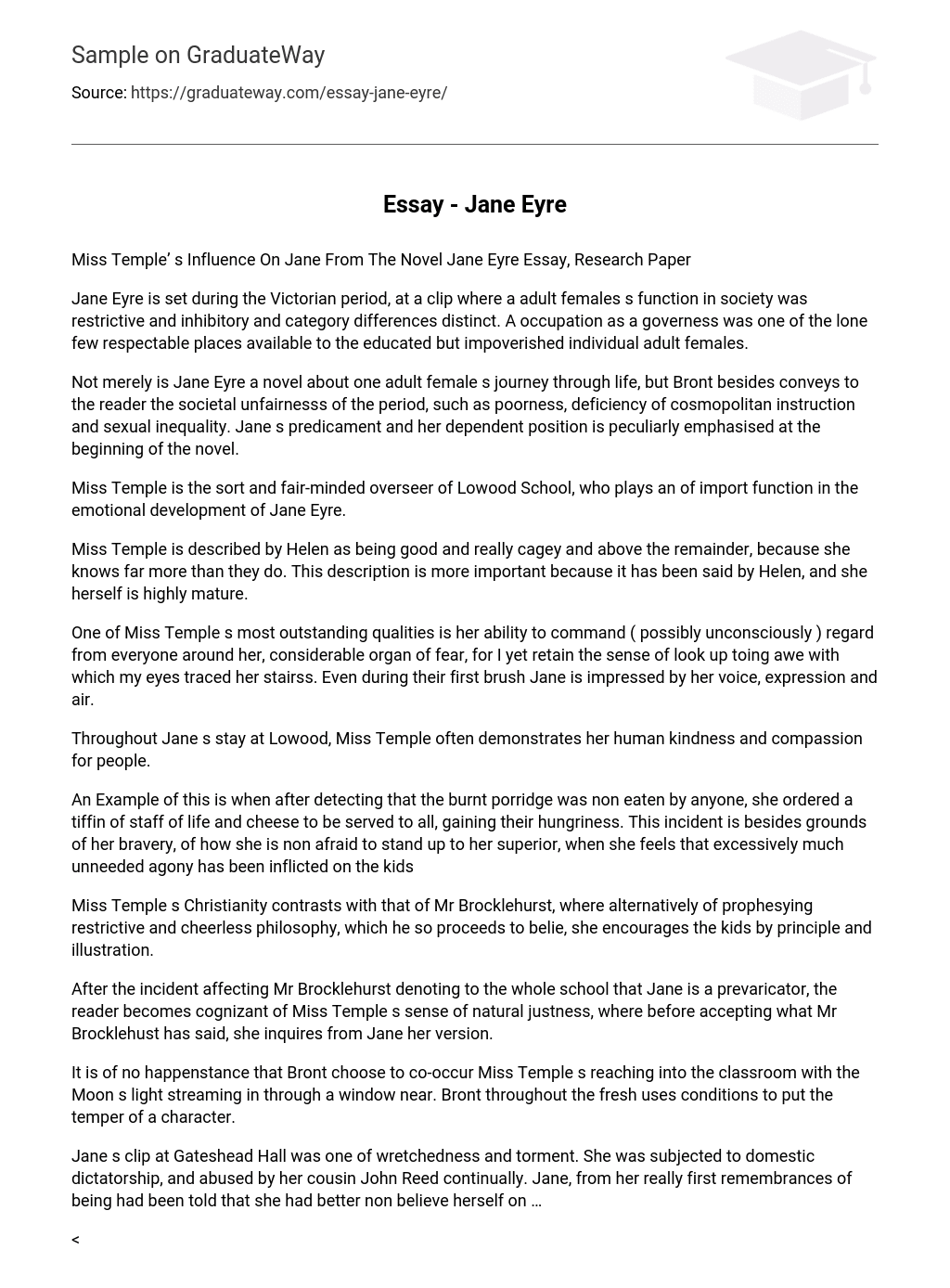In the novel Jane Eyre, Miss Temple has a significant impact on Jane.
In the Victorian era, Jane Eyre is set during a time when societal roles for women were restricted and social classes were clearly defined. For educated but financially struggling women, becoming a governess was one of the few reputable job options available.
Brontë’s novel, Jane Eyre, not only explores the personal journey of a single woman but also sheds light on various social injustices prevalent during that time. These include poverty, limited educational prospects, and gender inequality. Through highlighting Jane’s predicament and vulnerable position, particularly in the early stages of the story, Brontë emphasizes these societal issues.
Miss Temple, the just and impartial overseer of Lowood School, plays a significant role in Jane Eyre’s emotional growth.
According to Helen, Miss Temple is portrayed as being kind and extremely intelligent, surpassing everyone else as she possesses a vast amount of knowledge. This characterization holds greater significance as it originates from Helen, who is notably wise and mature herself.
Miss Temple possesses a remarkable talent for commanding respect from those around her, perhaps even without being aware of it. This ability instills a sense of fear in others, as I can still remember the awe with which I watched her every move. Even during their initial encounter, Jane is impressed by Miss Temple’s voice, expression, and demeanor.
During Jane’s time at Lowood, Miss Temple frequently showcases her benevolence and empathy towards others.
An example of this is when, after discovering that no one had eaten the burnt porridge, she boldly ordered a meal of bread and cheese to be served to everyone, satisfying their hunger. This incident also demonstrates her bravery, as she is not afraid to confront her superior when she believes that the children have suffered unnecessary pain.
Miss Temple’s Christianity is the opposite of Mr. Brocklehurst’s. Instead of preaching a strict and joyless philosophy, which he contradicts in his actions, Miss Temple inspires the children through her principles and examples.
Upon learning about the incident involving Mr. Brocklehurst accusing Jane of being a liar, the reader becomes aware of Miss Temple’s innate sense of fairness. Rather than blindly accepting Mr. Brocklehurst’s words, Miss Temple seeks Jane’s perspective on the matter.
Bront chose for a reason to depict the moment when Miss Temple reaches into the classroom with the Moon’s light streaming in through a nearby window. Bront frequently employs circumstances to portray a character’s mood.
Jane’s experience at Gateshead Hall was marked by intense suffering and torment. She endured a tyrannical household and constant mistreatment from her cousin John Reed. Since her earliest memories, Jane was constantly reminded not to trust herself…
The full paper can be accessed by our registered users for free. Logging in or registering is a simple process. Start now and enjoy all the benefits for free!





